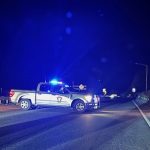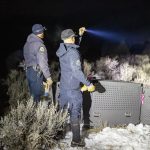Roberts: Halfway done in Denver
The legislative session is at its halfway point and there is much to report. At the Capitol, we are crafting legislation to build back a stronger Colorado, driving economic recovery with an ambitious stimulus plan, and several of my own bills are part of that stimulus. Optimism, while hard to come by in the past year, is now well warranted.
Recovery starts with Colorado’s $800 million economic stimulus plan. The plan will rebuild the state’s infrastructure by repairing Interstate 70 bridges and tunnels, expanding broadband access and revitalizing main streets in Colorado cities and towns. There are also provisions to invest in rural Colorado, support the recovery of small businesses, build affordable housing developments, train new work forces, treat mental health, and support child care, schools and students—the stimulus plan will reach far and wide.
One of my bills, HB21-1263, the Meeting & Events Incentive Program, is a part of the stimulus plan and will promote the return of events, festivals, conferences, and more to Colorado. The bill will be particularly impactful for rural Colorado, especially mountain towns that heavily rely on a tourism and travel economy. The bill creates the Colorado meeting and events incentive program to provide rebates and direct support to eligible events across the state that produce at least 25 overnight hotel stays. By encouraging events and meetings to return to Colorado, event companies, artists, performers, and many ancillary businesses, like hotels, restaurants, and brick and mortar retailers, will benefit.
The new state budget will also help Colorado return to pre-pandemic levels of state spending on many vital services. Education funding is being completely restored after cuts were made to K-12 and higher education in response to budget shortfalls last year. Increased spending on education means more per-pupil funding and better resources for teachers. The state budget also accounts for a 3% raise for state employees, whose salaries are often lower than their private sector counterparts.
The Colorado state budget for 2021-22 is made possible by the $4 billion federal stimulus that will flow to the state under the American Rescue Plan. The horizon is bright for Colorado in 2021, and my colleagues and I are working to make the future even brighter by improving the quality of life in our state, including improvements to health and well-being.

Support Local Journalism
In any year, public health often finds its way to the center of national and statewide discussion and this year, public health has been truly all-consuming. Colorado’s mountain communities have some of the highest health insurance premium costs and, as a result, some of the highest rates of uninsured residents in our state — an unacceptable statistic, particularly in the time of a pandemic. That is why I am working hard on a bill that would greatly improve Colorado’s health care system and fix some of the underlying equity issues that hurt so many during the pandemic.
My bill with Sen. Kerry Donovan to create the Colorado Health Insurance Option will lower premiums on the individual and small group markets by 20% and guarantee that a new quality and affordable plan is offered in every county on both the individual and small group markets. By working together with the health care industry, small businesses and consumers, who have been instrumental in developing this plan, health care will become more affordable, health outcomes will improve, and we can build a healthier Colorado.
Earlier in the session, I introduced HB21-1027, which extended the popular “to-go” alcohol bill that passed last year. During the pandemic restaurants have dealt with incredible uncertainty, extending their ability to sell delivery and takeout alcohol will give them a reliable revenue stream. This bill is well on its way to becoming a law.
Another success for Colorado was the passing of SB21-012, a bill I sponsored with Sen. Donovan that makes individuals who were trained in wildland firefighting while incarcerated eligible for employment as wildland firefighters upon their release from prison. Three of the largest wildfires in Colorado’s history occurred in 2020, and these inmates were on the front lines, protecting our homes, our property, our forests, and our lives. By allowing formerly incarcerated individuals to become state firefighters, we will lower recidivism, offer a path back into our communities, and protect our state from wildfires.
This is just a snapshot of the flurry of activity at the state Capitol as we turn the corner to the second half of the 2021 legislative session. As always, I invite you to contact me any time with questions or feedback at Dylan.Roberts.House@state.co.us or on my cell: (970) 846-3054.











